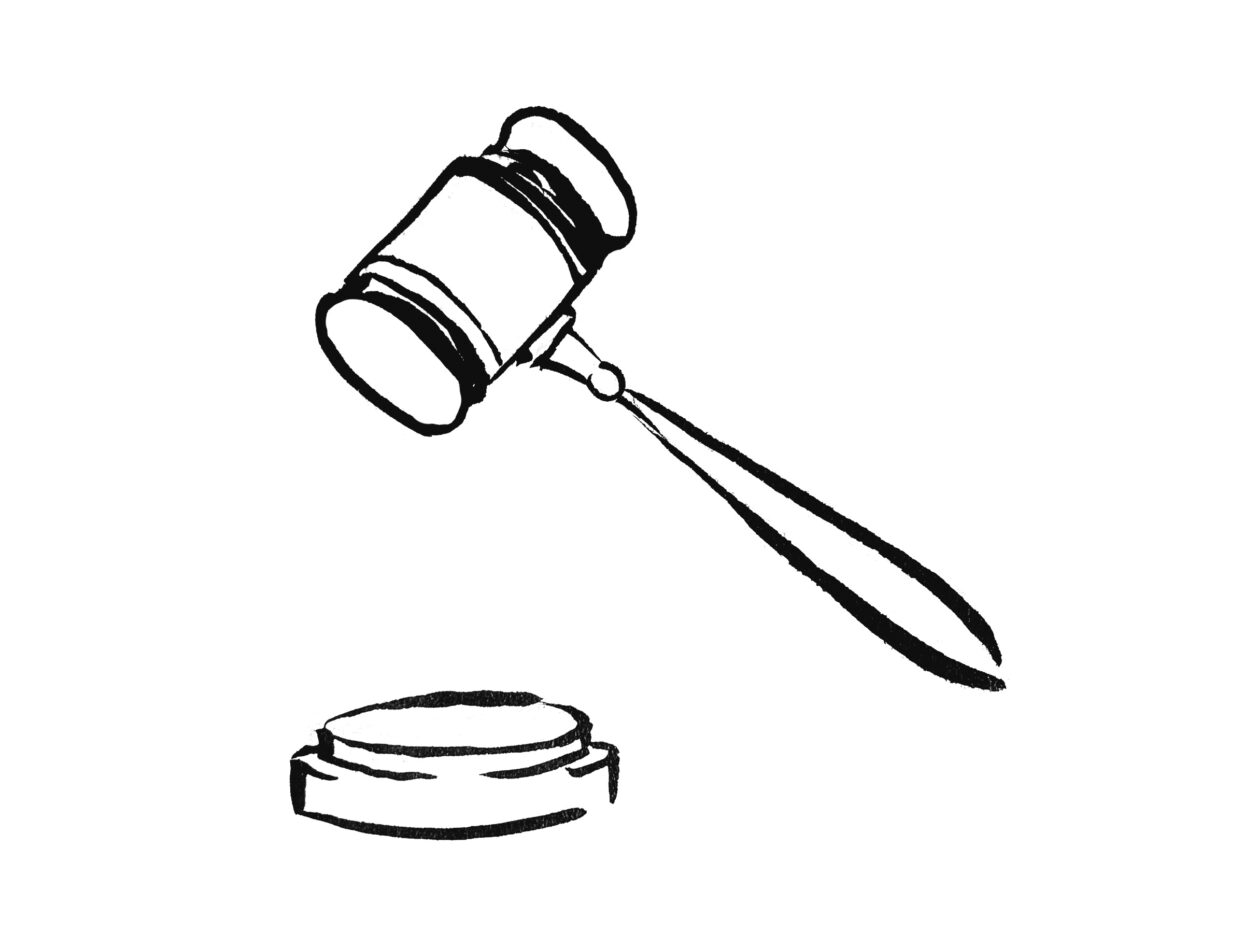
Illustration by Ivy Sanders Schneider

Illustration by Ivy Sanders Schneider
I assume that, by next summer, the Supreme Court will have overturned Roe v. Wade. Many states will swiftly outlaw abortion; some already have laws on the books that will be triggered as soon as the Court hands down its decision. I also fear that, within a decade, the Court will rule that abortion is unconstitutional. If it does, even blue states that would like to keep abortion legal will be unable to do so.
I say all this even though a group of talented feminist lawyers have written excellent briefs and persuasively argued their cases, as they no doubt will continue to do in later abortion suits. I say this even though I think they’re right.
So much of the last sixty years of feminist history — at least as it is popularly told, or as I heard it as a young person — has been dominated by lawyers and laws. RBG, an innovative sex discrimination lawyer turned moderate judge and justice, was, to many, the face of that movement. Laying the groundwork for #MeToo, theorists and litigators established civil rights against sexual harassment; Anita Hill, Esq. testified before Congress, spurring a wave of federal complaints about harassment at work. The Equal Pay Act, the Civil Rights Act, Title IX, the Pregnancy Discrimination Act — these were valuable tools and major milestones of which we could be proud. And then, of course, there was Roe, still precious despite all the ways courts and Congress had weakened its promise.
When I graduated from law school in the spring of 2016, my friends and I thought we would spend our lives as movement lawyers boldly advancing the precedents earlier generations of feminist attorneys had established. President Obama had just nominated Merrick Garland to the Supreme Court, and his confirmation (or that of Clinton’s alternative) would establish the first liberal majority in decades. I felt hopeful.
I don’t need to tell you I was wrong. I hadn’t anticipated Trump’s election or his dramatic reshaping of the federal judiciary. I had also underestimated the sheer volume of defensive work necessary to stop the law from moving backward, which has left fewer resources available to try to push it forward. One conclusion, then, which I am far from the first to reach: feminist movements cannot myopically focus on legal battles. Harder to swallow is a second hypothesis: perhaps the movement should not only de-emphasize lawyers but hold us at arm’s length — especially as more essential feminist work is rendered unlawful.
Let me explain. I’m glad there are feminist lawyers, and I’d like to think that isn’t just me justifying my own existence. Real people experience real wrongs, and lawyers can effectively serve some of those people some of the time. Recent victories like the Supreme Court’s recognition of legal protections for queer and trans workers give me reason to believe that we can still win occasionally. And even in cases that feel genuinely hopeless, I am glad we are going down with a (legal) fight.
Yet I am acutely aware of what law school and legal practice do to a person’s brain. Legal argument is inherently conservative: it requires attorneys to accept everything the courts have said to date as the gospel and show how, based on that precedent, their side should win now. From experience, it is hard to argue in that vein for long before the rules from which you reason start to seem right. I began law school deeply suspicious of the category of “woman.” But I’ve found it hard to keep hold of that thought after working to convince courts, again and again, that my client was discriminated against because she is a woman, as required to make a claim.
Perhaps most troubling, I have found a career in law to be a very potent way to limit one’s imagination both as to what is possible and what is effective. I’m not the first to note that, under a post-Roe regime, much of the important work necessary to help people get abortions will be illegal. Lawyers can and will defend those accused of breaking anti-abortion and other “fetal protection” statutes, just as they do now. But how many of us will risk our licenses to help someone break those laws in the first place? How many lawyers will read a new statute and conclude the best course (for their nonprofit, or their organizing circle, or themselves) is to violate it? I anticipate the coming years will be full of remarkable acts of feminist courage in the service of strangers, but that attorneys will be sparsely represented among the brave.
Feminist movements, then, should probably keep us lawyers around, but be wary of us. Recognize our weaknesses and limitations — both the limits of what our work can accomplish, and the ways that the work shapes our political instincts. Hold a few meetings without us.
Maybe I’ll take this all back soon. Maybe one of the many attorneys still doing important, genuinely risky work will win a victory that jolts me into new optimism. Maybe a court will rule in favor of one of my clients tomorrow and my faith in feminist progress through the courts will be restored. More likely, as soon as I’m a few pages into my next brief, I’ll convince myself again that reason will prevail, that being clever and good and right is enough. I’m already talking myself back into it.
Alexandra Brodsky is a lawyer and the author of Sexual Justice.